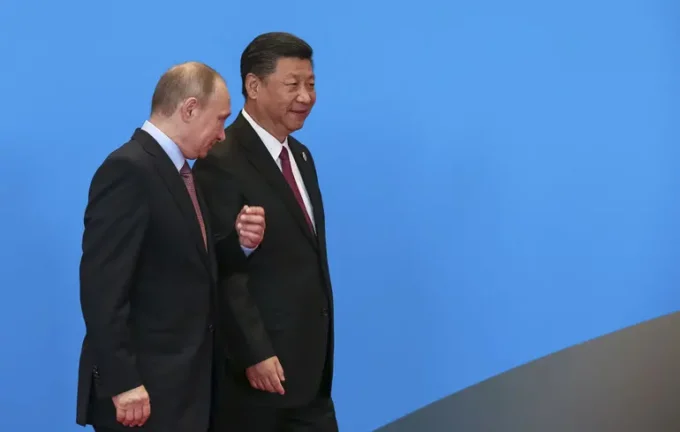U.S. Deadlines Concerning Ukraine: A Signal for Putin and Xi Jinping and Their Impact on Global Stability

Amid escalating tensions surrounding Ukraine and growing frustrations in the United States regarding Russia’s actions, new signals are emerging that are shifting the geopolitical balance in favor of the West.
U.S.
President Donald Trump announced a deadline of 10–12 days for Vladimir Putin, urging him to agree to a ceasefire in Ukraine.
This reflects a new tone in the White House’s rhetoric, now openly criticizing Russia’s escalation and calling for a more pragmatic response.
Meanwhile, Moscow interprets this silence as a pause in pressure and actively uses this window to intensify their offensive, attacking residential and civilian infrastructure.
In the past year, Russian forces have advanced at their fastest pace and increased their operational capabilities, deploying Iranian Shahed drones, produced in Russia with Chinese components.
Ukrainian air defenses are fighting heroically, but they are nearing their limits as mass drone attacks threaten civilians.
The U.S.
possesses tools to escalate pressure, including a bipartisan sanctions bill supported by 85 senators, aimed at imposing secondary tariffs on countries like China, India, and Brazil that continue to buy Russian oil and gas, thereby complicating their economic relations with Moscow.
However, despite this bipartisan support, concrete actions are delayed as political disagreements persist.
Instead of proactive steps, Congress relies on rhetoric and warnings, unintentionally giving Putin additional time to consolidate gains.
Globally, the role of China in the conflict becomes increasingly prominent, with Beijing actively supplying Russia with military components and entire weapon systems.
Diplomats report China’s involvement in technological and strategic support for occupied Ukraine territories, including the detention of Chinese nationals suspected of espionage in Kyiv.
This situation highlights a broader geopolitical struggle involving the U.S., China, and Russia, with Ukraine remaining a key battleground.
Russia’s recent attacks on Kyiv in response to Trump’s deadlines reveal its tactical flexibility, while U.S.
officials call for more decisive actions to prevent Moscow’s escalation from destabilizing global security.
The ultimate goal remains creating an effective strategic deterrence and holding all responsible parties accountable, fostering international stability and peace.

